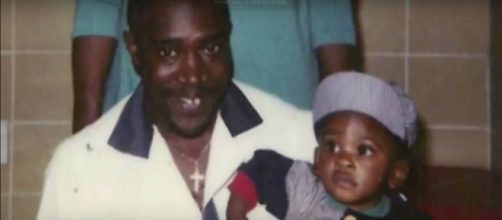Georgia’s Board of Pardons and Paroles will hear arguments today about the possibility of granting clemency for 59-year-old Keith Leroy Tharpe, CNN noted. Tharpe is scheduled to be executed on Tuesday at 7 PM. The clemency hearing marks the exact day he killed his sister-in-law, Jaquelyn Freeman, 27 years ago.
Tharpe’s attorneys have appealed to the U.S. Supreme court to intervene and halt his execution. The basis for stopping his pending date with death, Tharpe’s attorneys argue, is that now-deceased juror Barney Gattie’s vote for the death sentence was premised on a racial bias.
According to the Atlanta Journal-Constitution, Gattie once stated that after studying the Bible, he wondered “if black people even have souls.” Gattie was white and Tharpe is black.
Death row inmate's attorneys cite racial bias, juror misconduct as reason to stop execution
The condemned inmate’s lawyers are not asserting that Tharpe is innocent of murdering Freeman in 1990. They are, instead, basing their argument for commuting his death sentence on the foundation of juror misconduct, CNN reported.
In an interview conducted seven years following Tharpe’s conviction and sentencing, the attorneys pointed out that Gattie used the “n” word and that the death sentence was the outcome of the juror’s racial prejudice.
Georgia law would not allow verdict invalidated due to racial bias
When Tharpe was convicted and sentenced to capital punishment in 1991, attorneys were precluded from raising objections to his death sentence on the premise of Gattie’s racial bias due to a law in Georgia. At the same time, though, defendants in Georgia can only be sentenced to death if a jury reaches a unanimous verdict.
A March 2017 U.S. Supreme Court ruling in Pena-Rodriguez v Colorado could influence the high court to decide in favor of granting Tharpe a reprieve from execution. The court’s 5-3 vote in March created the precedence that laws – such as Georgia’s – violates the Sixth Amendment when a juror has expressed a racial bias that is used in convicting a defendant.
Juror signed affidavit, admitting bias against blacks
Attorneys from the Georgia Resource Center, which provides free legal service to death row inmates, interviewed the jurors from Tharpe’s trial in May 1998 while working on his habeas corpus petition, which establishes whether he was incarcerated lawfully. Tharpe’s lawyer, Brian Krammer, stated that Gattie held appalling racist views concerning black people. The juror also used the “n” word all the way through the interview, CNN noted.
Tharpe’s lawyers went back to Gattie’s home weeks following the interview. Court records reflect that Tharpe’s attorneys even read Gattie’s statements “back to him,” CNN relayed. They asked Gattie if his statements were correct.
The former juror offered a lone correction. Under oath in 1998, he signed an affidavit.
In his affidavit, Gattie had stated: “I felt Tharpe wasn’t in the ‘good’ black folks category,” according to CNN. He also said that Tharpe should "receive the electric chair for what he did.” Since 2001, the state of Georgia has used lethal injection as a means for imposing capital punishment.
Krammer assessed that Gattie “admitted his criteria” in determining that Tharpe should be sentenced to death was based less on evidence than it was on the defendant’s race. In the process of jury selection for Tharpe’s 1991 trial, however, Gattie informed defense and prosecution lawyers that he “could be fair and impartial,” according to Krammer and CNN.
Georgia Department of Corrections is proceeding with plans to execute Tharpe tomorrow evening while Tharpe’s attorneys await the outcome of the Parole Board clemency hearing or the U.S. Supreme Court.


